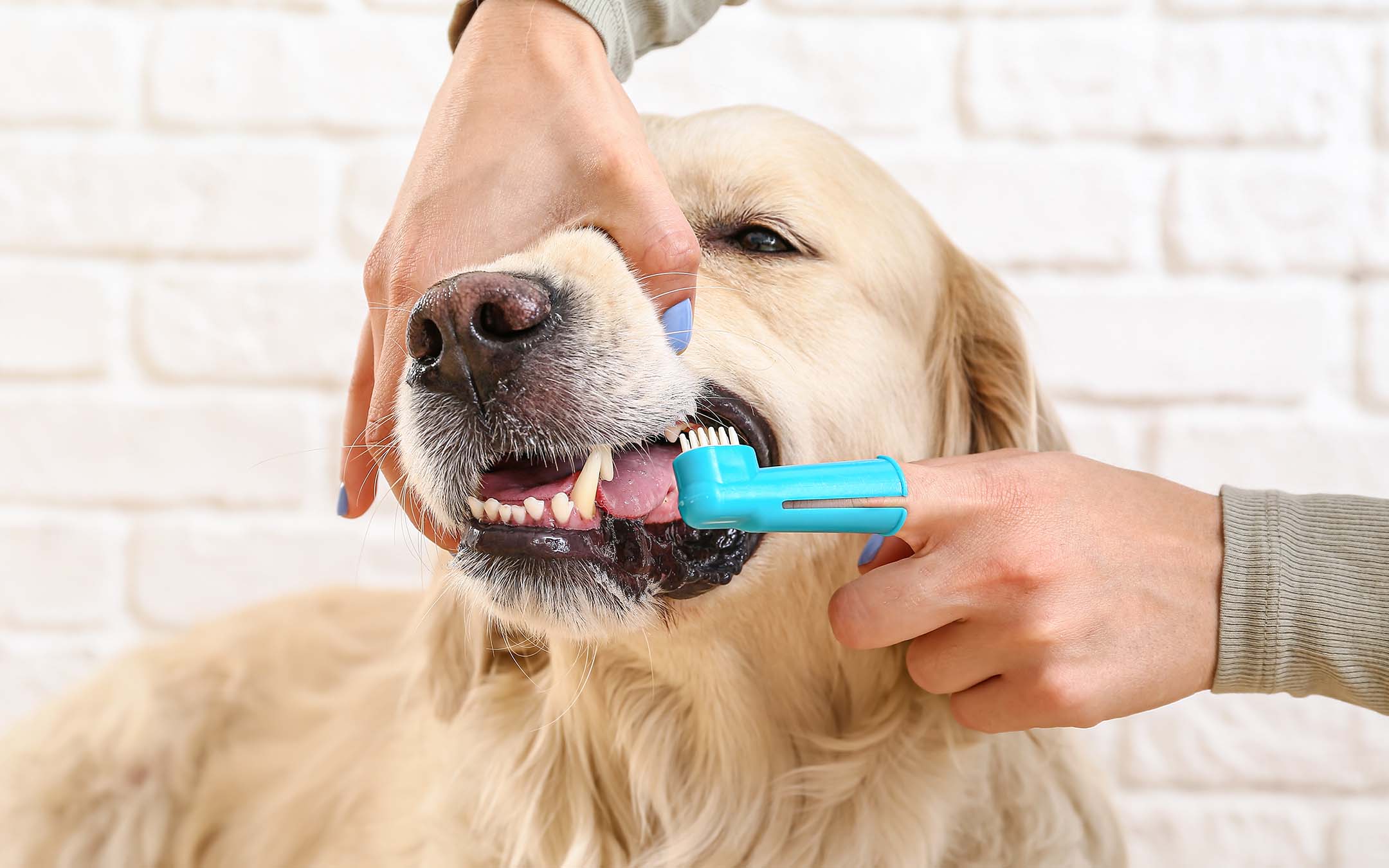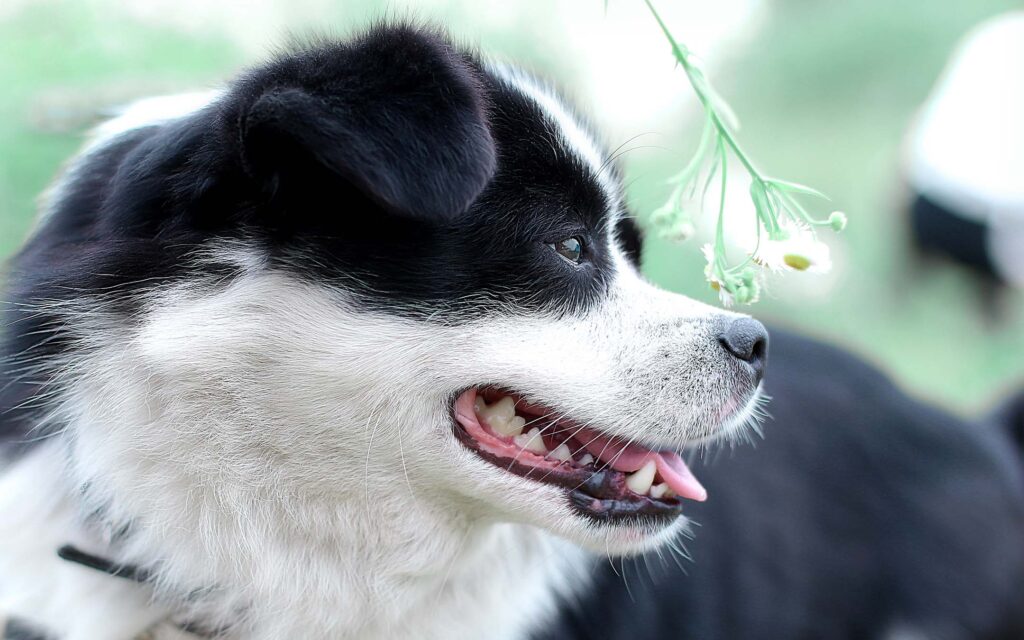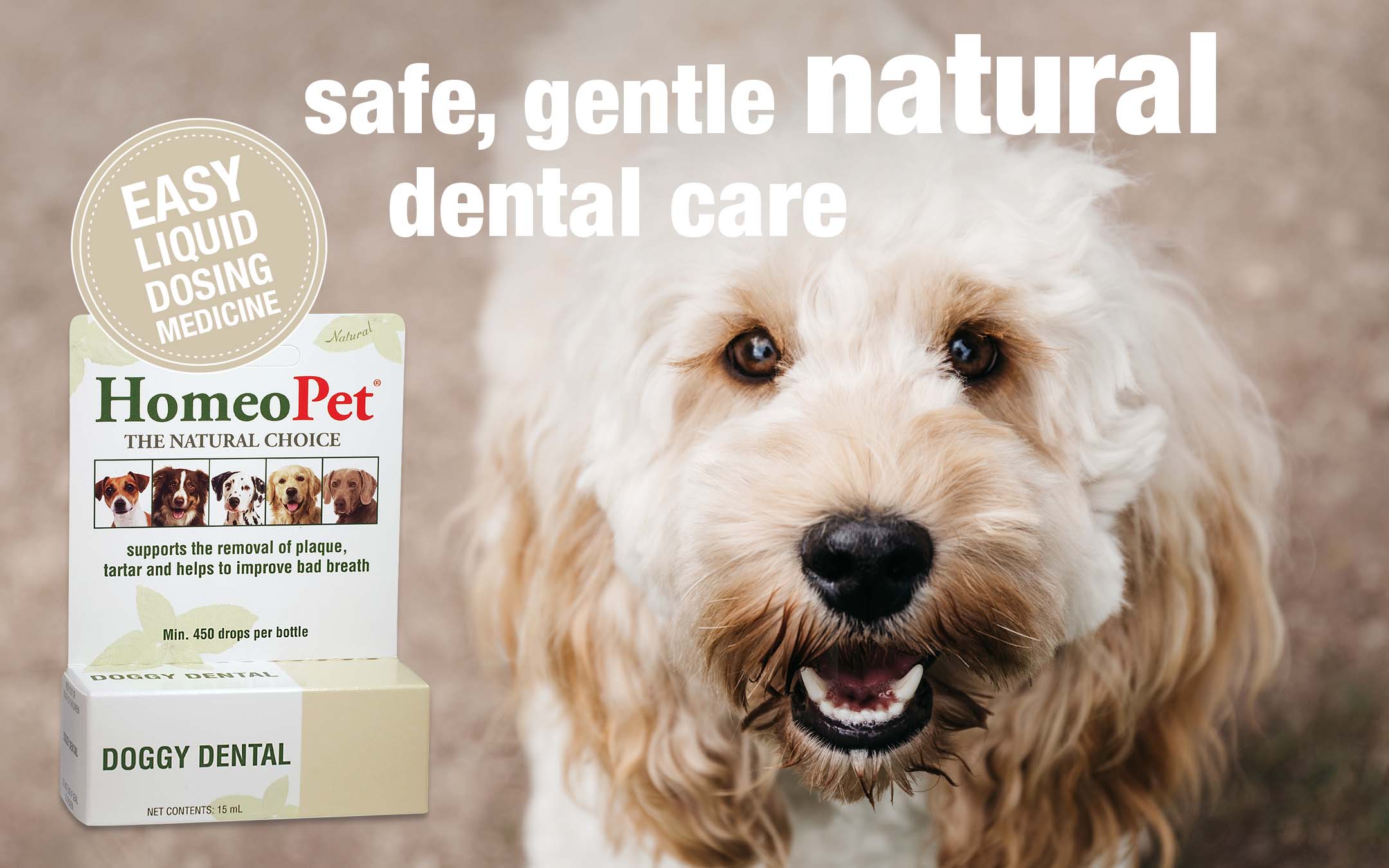Natural Pet Health
Bad Breath in Dogs – 6 tips to help freshen your dog’s breath
So, your dog has bad breath? While we may feel self-conscious, embarrassed, or maybe even genuinely anxious if our own breath started to smell bad, if our dogs’ breath smells bad, they really don’t care! However, as a loving dog mom or pop you should care. And here’s why…
Bad breath in dogs can indicate an underlying health problem that may require veterinary attention. But not only that… Studies show that taking good care of your pet’s teeth can add 2-4 years to your pet’s life! So then, what’s not to love about oral hygiene for dogs?
In this article we discuss the causes of bad breath in dogs and the steps you can take to freshen your pet’s breath and help to keep them healthy and happy.
Causes of bad breath in dogs:
1. Oral hygiene: Plaque and tartar build-up on your dog’s teeth is a primary cause of bad breath. Plaque is a sticky film of bacteria that can accumulate on the surface of your dog’s teeth, gums, and tongue. It takes just 48 hours for dental plaque to turn into tartar (a hard brownish-grey substance that is visible on teeth) which can’t be removed by brushing.
2. Diet: Feeding your dog an imbalanced diet or table scraps that are unhealthy for dogs such as foods that are high in simple carbohydrates (sugar) Many common foods convert to sugar in the digestive system which can cause digestive issues that may not only lead to bad breath in the short-term but can also negatively affect your dog’s long-term health due to nutritional imbalance.
3. Gum disease: Gum disease is an all-too common issue in dogs that can cause bad breath, pain and, if left untreated, tooth loss.
4. Respiratory tract infections: Infections in your dog’s respiratory tract, such as bronchitis, can cause bad breath.
5. Liver or kidney disease: These underlying health issues can cause a change in your dog’s metabolism, which can lead to bad breath.
6. Foreign objects stuck between the teeth (or anywhere in the mouth for that matter!) such as a toy, twig or bone can be a cause of bad breath. It’s amazing what sorts of things veterinarians can find stuck in the mouths of various pooches!
7. Oral (Mouth), respiratory, or gastrointestinal tumours and cancers can lead to bad breath, so it is always worth checking what the cause of bad breath (halitosis) is, especially if there is any sign of enlargement or growth in the mouth, face, or nose.

Steps to freshen your dog’s breath:
1. Brush your dog’s teeth: Brushing your dog’s teeth regularly is one of the most effective ways to help prevent bad breath. Brushing your dog’s teeth should be done at least two to three times a week, so plaque is removed before it gets the chance to turn into tartar. While brushing your dog’s teeth may seem like an arduous task, it’s not as difficult as you might think!
2. Offer dental chews and toys: Dental chews and toys can help to remove plaque and tartar build-up, freshen your dog’s breath, and help to keep their teeth and gums healthy.
3. Feed a balanced diet: A balanced diet that is appropriate for your dog’s age, size, and activity level can help keep their digestive system healthy and help prevent bad breath. In some cases the diet will need to be appropriate to the condition causing the bad breath such as a kidney, liver or dental-friendly diet, taking advice from your veterinarian or a veterinary nutritionist.
4. Keep your dog hydrated: Drinking plenty of water is essential for your dog’s overall health and can help keep their breath fresh. Make sure your dog always has access to clean, fresh water. Some dogs, especially those elderly dogs with kidney disease, can benefit from a wet diet such as a stew full of water vegetables and a low protein residue meat such as chicken breast. As always in such cases, seek veterinary advice.
5. Dog tooth-care medicine. Our Doggy Dental (unfortunately not yet available in Canada) natural medicine is veterinary formulated to help support healthy teeth and gums in dogs. Simple and easy to dose and safe to use in dogs of all ages, Doggy Dental may help reduce the build-up of plaque and tartar and so could also assist with bad breath.
6. Consult your veterinarian: If you have tried these steps and your dog’s bad breath persists, it’s time to take them to your veterinarian. Your vet can rule out any underlying health issues and provide specific recommendations for your dog. Your vet can also give your dog’s teeth a thorough clean and so remove any tartar build-up that may be a cause of his or her ‘doggy breath’!
In conclusion, bad breath in dogs can be a sign of a larger health issue, but it’s often easily treatable with proper oral care and a balanced diet. By following these simple steps, you can help keep your dog’s breath fresh and healthy and ensure that your pet remains in excellent health. Regular visits to the vet can help keep your dog healthy and prevent serious health problems from developing. If you have any concerns about your dog’s breath or overall health, don’t hesitate to consult with your veterinarian.
Do you have any questions? Let us know in the comments, and we’ll get back to you as soon as we can. Watch the below video for some tips from Tom Farrington MVB MRCVS VetMFHom on how to take better care of your dog’s oral health.
This article was vet approved by Tom Farrington MRCVS., MVB., VetMFHom. Chief Veterinary Medical Advisor for HomeoPet. Tom has been a practicing veterinarian in Ireland for over 35 years and employs complementary therapies in a multi discipline approach to healing medicine. Tom is an honors veterinarian, holds advanced degrees in homeopathic medicine, lectures internationally and leads clinical research teams.






